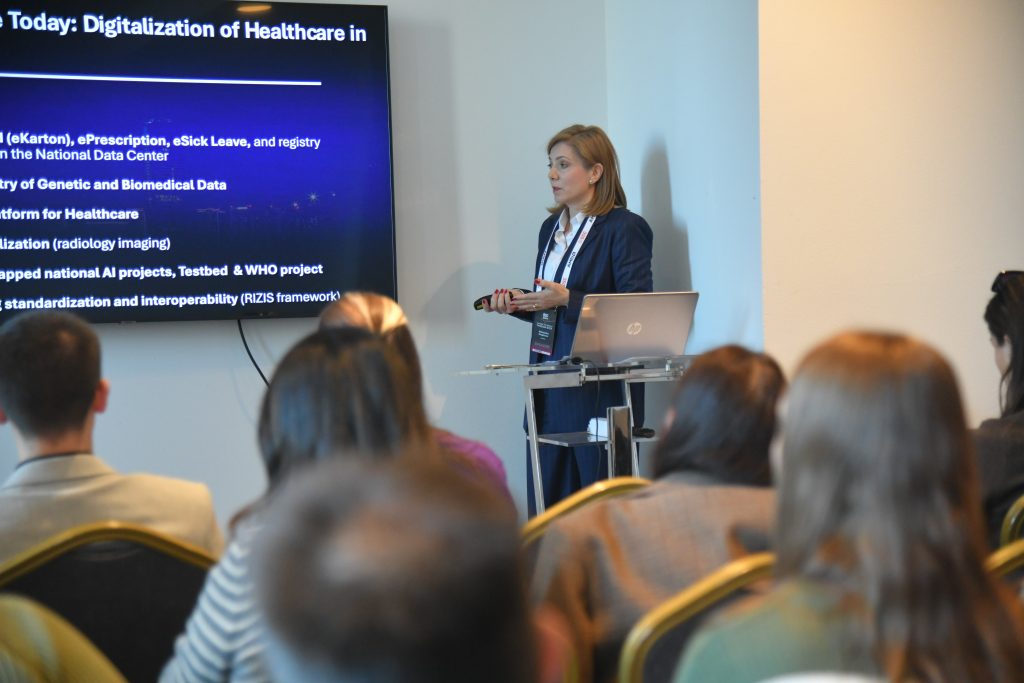During the visit to Belgrade, as part of the opening ceremony of the first international conference Biotech Future Forum and launch of the Center for the Fourth Industrial Revolution in Serbia, president of the World Economic Forum Børge Brende gave an interview for CorD Magazine about the importance of the biotechnology market and its development, but also about the ways in which smaller countries such as Serbia can find their place and perspective in that market and where they can find their role in global trends.
Ljubica Gojgic: The global biotechnology market had an estimated value of $1,023.92 billion in 2021 and is expected to grow at a compound annual growth rate (CAGR) of 13.9% from 2022 to 2030. Where does biotechnology stand compared to some other technologies when it comes to shaping future GDP growth?
Børge Brende: Biotechnology is rapidly expanding as it modernises industries and transforms sectors— supporting growth and creating hundreds of thousands of jobs, both directly and indirectly. Further biotechnology will have a profound impact on our health, productivity and the environment. It is catapulting advancements in many industries, particularly in the medical, agricultural and industrial sectors.
The unique aspect of biotechnology is that a whole ‘economy’ is being developed around the technology and its applications. The ‘bioeconomy’ is enabling the generation of products and materials that both transform traditional goods and services and create new ones. It’s difficult, and potentially misleading, to compare biotechnology to other emerging technologies. These technologies are complimentary. For example, artificial intelligence is important for digesting and interpreting the large amount of genetic and biodata that is being generated by biotechnologies. It will be the combination of frontier technologies that will generate the largest benefits for economic growth.
Ljubica Gojgic: Breakthroughs in biotechnology were for many years reserved for large companies and advanced economies. How can smaller countries like Serbia fit into that perspective and where can they find their role in global trends?
Børge Brende: The cost of biotechnological development and research has reduced drastically over past decades. For example, the cost of sequencing the human genome has decreased from billions of dollars to less than $1,000. This has opened up significant opportunities for smaller economies and companies to start innovating and experimenting with biotechnology.
For a country like Serbia, there is a great opportunity to establish itself as a leading nation for biotechnology research, development, commercialisation and treatments. Serbia can indeed be more agile than larger countries in its policies and systems. This will help Serbia better support local biotechnology activities, while remaining responsive to any risks that emerge.
Serbia can differentiate itself from other nations by building a stable, integrated and advanced environment. This will instil biotechnology experts with long-term confidence that they will be able to develop and test biotechnology applications within the country, have access to international research and leading infrastructure, such as Serbia’s NVIDIA supercomputer, and be able to experiment and learn in a flexible, ethical and internationally connected environment.
Ljubica Gojgic: The Biotech Future Forum is the first of its kind in Serbia. What are your expectations of the event and how was WEF involved in the Forum?
Børge Brende: The Biotech Future Forum marks the official launch of the Centre for the Fourth Industrial Revolution in Serbia (C4IR Serbia), a collaboration between the Government of Serbia and the World Economic Forum. This Centre is leading, within a network of 16 Centres, when it comes to establishing critical policies and collaborations for the advancement of biotechnology and artificial intelligence for healthcare.
Foundational to the Centre’s mission is being a platform for public-private partnership— bringing together stakeholders from government, business and academia to accelerate the deployment of emerging technologies. There are experts from over 20 countries at the Biotech Future Forum, including representatives of several other Fourth Industrial Revolution Centres, as well as business figures and experts from the World Economic Forum’s communities. The Biotech Future Forum is a great opportunity to show C4IR Serbia’s power in bringing together experts from across the world to advance the transformative potential that biotechnology offers society.
The Biotech Future Forum covers many topics, including bioinformatics, bioengineering, the use of data in the development of healthcare and biotechnological development, the promotion of public policies and scientific achievements and the possibility of their application. We hope that those attending will deepen their knowledge and collaboration in their current area of expertise, while gaining a better appreciation of how this expertise interacts with innovation, governance, policies and investment for biotechnology.
Ljubica Gojgic: How does this conference fit into the broader perspective of your engagement in Serbia, and in general?
Børge Brende: The Fourth Industrial Revolution Centre in Serbia is the primary vehicle through which the World Economic Forum supports Serbia’s advancing frontier and emerging technologies. The aim is to help the country establish itself as a nation of new technologies, knowledge and innovation. The Biotech Future Forum is an opportunity for the Government of Serbia and the World Economic Forum to catalyse this process and build a strong, internationally connected biotech community in Serbia.
As you may know, the Forum has deeprooted relations with Serbia and the Western Balkans. We have a structured and ongoing Strategic Dialogue on the Western Balkans, where we bring leaders together with their key allies and CEOs to progress on a future-oriented agenda, upholding stability and economic transformation.
Ljubica Gojgic: The conference aims to bring together the public and private sectors and the academic community in order to encourage cooperation and exchange of knowledge and experiences. This cooperation between triple helix partners remains at a relatively low level in Serbia. Could you share some good practices pertaining to how this cooperation might be improved?
Børge Brende: What we see time and time again is that when business, government and academia coordinate efforts, progress follows. But when self-interest is pursued, our global challenges accumulate. The World Economic Forum has over 50 years’ experience bringing together public-private communities for fruitful col laboration. As I shared as part of our recent Sustainable Development Impact Meeting, this collaboration tends to be characterised by three factors: the need is urgent; the area for collaboration is specific; and the benefits are clear. Climate change is just such an area where, despite geopolitical tensions, diverse groups can work to advance an area of mutual interest. Frontier technologies represents another area in which the unlocking of the benefits of new technology at scale can bolster the global economy.
A common difficulty with cooperation, which the Biotech Future Forum helps address, is that multistakeholder partnerships often work in isolation. This can create small examples of impactful collaboration that often struggle to find relevance and scale beyond their immediate environment. The World Economic Forum takes a systemic approach to building its communities and initiatives, as opposed to targeting a single problem area without consideration of its broader context. Initiatives like the EDISON alliance, Future of the Connected World and the First Movers Coalition bring together a range of actors and actions to ensure shared learnings, synergies, and scale.
The full interview of the President of the World Economic Forum for the new Magazin CorD can be read here: cordmagazine.com





